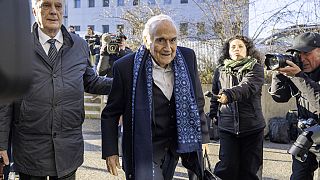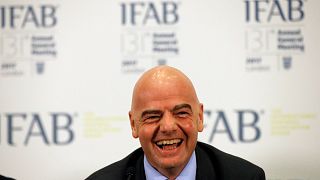Football Planet
In this article, the word home is used to refer to Africa.
More and more players of African descent in Europe are trooping back home. Most recently, Geoffrey Kondogbia (France) and Saido Berahino (England) completed nationality switches to Central African Republic (C.A.R) and Burundi respectively. Other players like Gabon’s Aubameyang, Ghana’s Kevin Prince Boateng and Ivory Coast’s Wilfried Zaha who have made similar moves and by observation, that has become a curious trend.
It led the big (hypothetical) question; is Africa’s ‘muscle drain’ finally over? Nuhu Adams, a veteran sports analyst from Ghana joined us on call from Accra to share his comments. He said: “It’s not like they’re willing to come back but when they realize they can’t play for the countries they are in, that is when they opt to come play for their African teams. If Kevin Prince Boateng was aware he was going to be called up by Germany for the 2010 World Cup he would never have come to play for Ghana.
“Yes it’s good they are coming back but I can’t really say they are coming to play for Africa. That’s not the reality. The reality is that when they are ignored by those European countries then they turn to Africa because most of the african countries are always chasing for such players,” he said.
In a nutshell, Nuhu is of the opinion that their return has little to do with tracing back their roots, patriotism or even pan-Africanism. It’s more about pursuing and securing personal convenience.
Abdullahi Boru Halakhe, a Horn of Africa security analyst share’s Nuhu’s sentiments. He say’s in an article published on Aljazeera that most of the players switching to African national teams are doing so because they are unable to make the cut in Europe adding that it has a lot to do with intense domestic competition but also with increasing racism. ### Biting graft and con agents at home
Halakhe further points out that African football will continue to struggle to retain talent, owing to poor governance, predatory and unregulated football agents and inadequate commercial incentives that have continued to push exceptional African players to leave the continent for Europe.
Few African football federations are managed professionally; corruption is rife with money meant for football development ending up in individual officials’ bank accounts.
The sheer number of African players playing in foreign leagues is one of the most notable trends in recent tournaments.
Corruption and poor management have stunted local leagues across Africa and discouraged fans from attending games. Predatory and exploitative “football agents”, who lure young boys with a promise to make them the next big thing in Africa’s football, have filled the gap left by the lack of adequate training schemes and academies.
A lack of regulation and inspection allows these con men to operate with impunity. They promise to sign young boys for famous clubs in Europe and take exorbitant fees from the boys’ families to secure these “deals”. Sometimes families sell everything they have to pay the agents because they believe their child will become the next Didier Drogba. In some cases, the agents disappear with the family’s savings before the boy even travels to Europe, in others the boy is taken to Europe and left there alone to fend for himself.
According to Charity Foot Solidaire at least 15,000 young football players are moved, out of West Africa each year under false pretences, but a lack of monitoring means the number of boys being trafficked abroad could be far higher.
As a result, international superstars like Senegal’s Sadio Mane and Egypt’s Mohammad Salah prefer to play for European football clubs, rather than staying in Africa and so the problem of allegiance persists.
Problem of allegiance
The sheer number of African players playing in foreign leagues is one of the most notable trends in recent continental tournaments. During the 2017 AFCON in Gabon, 368 players were involved and out of that number, 64% play their club football in Europe, just under a third play in Africa (28%), followed by Asia (6%) and the Americas (1%), according to numbers from Sportslens.
It’s also becoming increasingly rare to find home grown coaches on the sidelines in major African tournaments. At AFCON 2017 only four teams – Senegal, Zimbabwe, Guinea Bissau and the Democratic Republic of Congo – were led by African coaches, while most of the other 12 tacticians are European.
At the Russia 2018 World Cup, Senegal’s Aliou Cisse was the only coach from Sub-Saharan Africa and conversely didnt have any player in his 23-man squad that was playing in the local Senegalese league. The closes he came was having Khadim Ndiaye who plays for Guinean side Horoya AC. The rest ply their trade outside Africa.
Muscle drain will persist
Looking at the big numbers of players playing outside their home countries, it’s evident that the muscle drain is far from over and then another question arises; has this massive migration affected the African game?
Of course, when such a huge number of talented players showcase their talents away from Africa, the local leagues are left poorer. This makes it difficult to increase spectator numbers in stadiums except when the national team is playing and the star players are back in the country, as Professor Wycliffe W. Njororai Simiyu writes in The Conversation.
However, he says, at individual level the players are well rewarded for their talent and efforts. Additionally, individual players’ technical, physical, psychological, tactical and overall understanding of the game really skyrockets.
Such players tend to bring back home a positive influence on the national team. No wonder that most of the dominant African teams have the largest number of footballing “exiles”. It’s worth noting that when the national team does well, there is more inflow of cash from international governing body FIFA and also easier to attract corporate support.
The downside is that these star players tend to convert their home audiences to fans of the foreign leagues where they showcase their skills. With European leagues dominating the cable TV networks, most fans transfer their allegiance to foreign leagues and that contributes to reducing interest in domestic leagues.
This should be a wake-up call to those overseeing the African game – it’s time to value and treat players with maximum respect and reward them accordingly.




![African women's football gets traction [Football Planet]](https://static.euronews.com/articles/stories/06/82/33/98/320x180_cmsv2_92723d47-bd7a-5463-af16-15cb720da382-6823398.jpg)








01:40
Kenya protests turn violent as court, activists demand justice for victims of police brutality
01:46
Algerian football players deal with intense heat as season ends
00:33
Mamelodi Sundowns victorious in Club World Cup debut match
01:55
DR Congo: Joy in Goma as local man beatified by Pope Leo XIV
00:08
Vatican beatifies Congolese customs worker killed in 2007 for refusing bribe
Go to video
2026 World Cup: One year to go